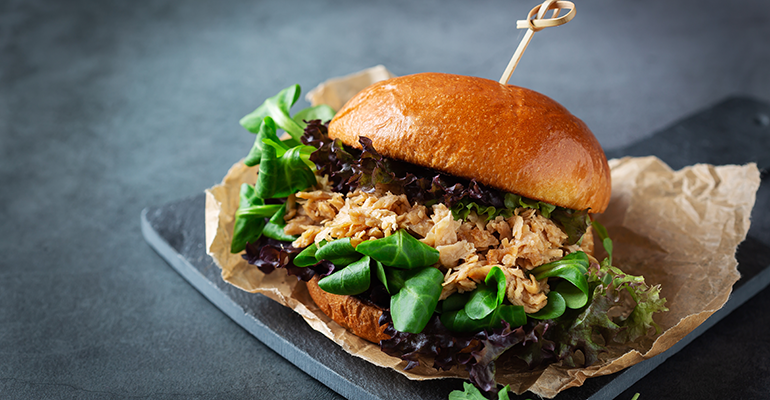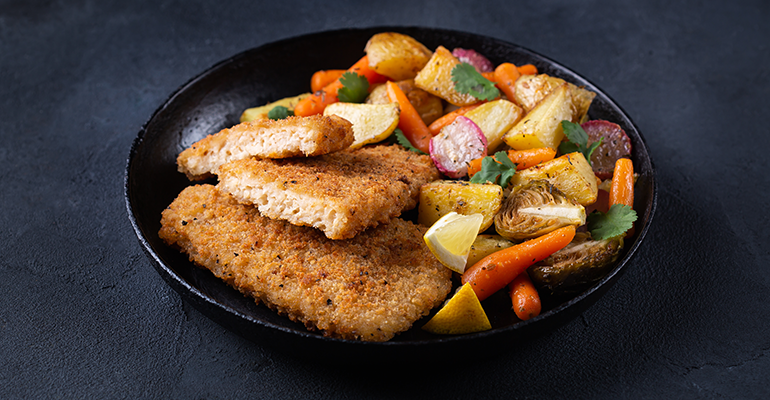News
EU consumers seek plant-based products that resemble ‘the real thing’
8 Nov 2023Moral, environmental, and health considerations are driving demand for plant-based alternatives across Europe. Yet consumers want products that resemble conventional animal products where taste, appearance, and texture are concerned, Mintel data shows.
Rising consumer awareness about the link between diet, health, and the environment has driven significant growth in the demand for plant-based alternatives in recent years.

From 2018 to 2022, the number of new food and drink launches carrying a plant-based claim soared by 302% globally as consumers sought out healthier and more sustainable alternatives to animal-based products, Mintel data shows.
Yet many plant-based alternatives fail to compete with traditional animal-based products where taste, texture, and appearance are concerned. A report by Irish ingredient manufacturer Kerry found that flavour is the main barrier to widescale adoption of plant-based products.
Chicken-flavoured products most popular among consumers
Despite the growing popularity of meat alternatives in Europe, many consumers, particularly flexitarians, are seeking out meat-like flavours when purchasing plant-based products.
According to Mintel, around one-third of meat alternative consumers in Germany report that they would choose a plant-based product with a meat-like taste and texture over one without.
Chicken-flavoured products have recorded the highest growth over recent years, with alternatives resembling poultry rising by 7% from 2019 to 2023, Mintel data shows. One example is Polish manufacturer Plantway’s Awesome Plant-Based Indian Curry Chicken, which is made from pea protein and can be used in pasta, rice, salads, pizza, soups, or sandwiches.
Demand for whole-cut meat and fish alternatives rises
Meat, fish, and shellfish flavours are also drawing the attention of European consumers, increasing by 14% of the share of total category launches in the five years to August 2023, according to Mintel. Examples include UK-based VBites Foods’ Plant Power Smooth Tuna Style Paté, a fish-free tuna-flavoured paté based on wheat and soya protein available throughout France; and multinational seafood manufacturer John West’s Vegan Fish-Free Tuna with a Dash of Oil and Vegan Fish-Free Tuna with Tomato & Basil, which launched in the Netherlands earlier this year.
 Pictured: Vegan plant-based fish in crispy batter | © AdobeStock/aamulya
Pictured: Vegan plant-based fish in crispy batter | © AdobeStock/aamulya
For 29% of UK consumers, meat alternatives that replicate the taste, texture, and appearance of whole-cut protein analogues like beef steak are particularly appealing. Slovenian startup Bevo recently launched a plant-based fillet steak, Juicy Marbles, featuring beef-like marbling in multiple markets across Europe. Last year, Israeli food-tech company Redefine Meat launched the world’s first 3D-printed whole cuts of beef and lamb that “bleed”.
Environmental concerns drive interest in plant-based alternatives
As the global climate crisis intensifies and natural disasters become more commonplace, consumers are increasingly adopting flexitarian and plant-based diets.
Over one-quarter (28%) of Italian adults choose products based on their environmental and ethical footprint, and over half (55%) of German carnivores report to have decreased their meat consumption in the past six months, Mintel data shows.
In the past five years, ethical and environmental claims on meat alternatives have risen by 13 percentage points across Europe, to cater to this growing demand.